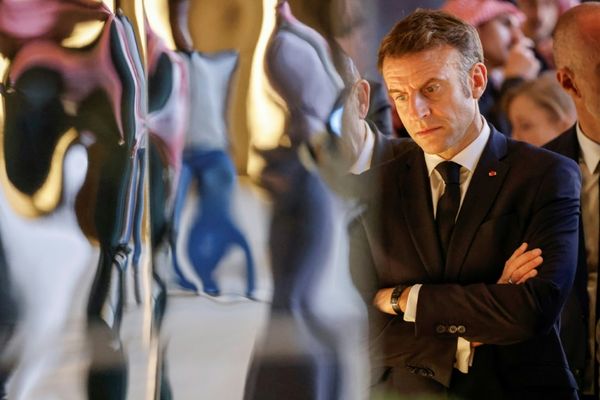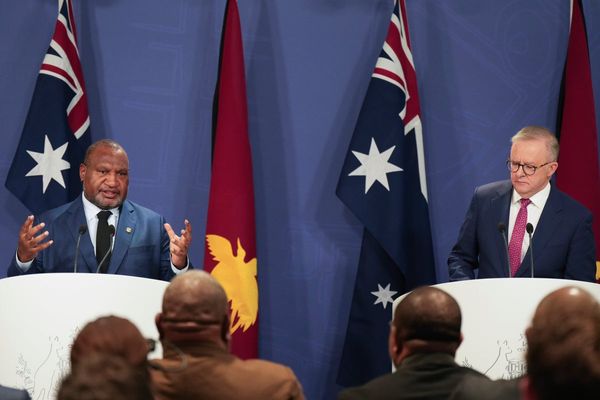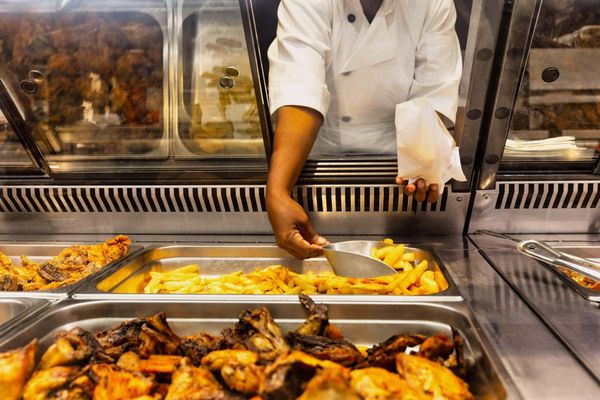He may not be the most famous Joe in American politics, but Senator Joe Manchin is quickly becoming the most powerful.
The Democrat from West Virginia, a mountainous state known for its coal-mining industry, currently wields outsized influence in Washington DC, where he holds a deciding vote in an evenly split Senate.
In recent weeks, Senator Manchin and his Senate colleague from Arizona, Kyrsten Sinema, have whittled down their party's ambitious agenda by more than half.
The $US6 trillion social spending plan which was the backbone of Joe Biden's pitch for the presidency is now a slimmed-down $US1.75 trillion "framework" without key measures to tackle climate change.
Paid parental leave, lower prescription drug prices and free community college are also likely casualties of ongoing negotiations.
Senator Manchin said his concerns simply reflected those of most Americans.
"We can't go too far left," he recently told CNN.
"This is not a centre-left or a left country. We are, if anything, a centre-right country."
Now the plan has been decoupled from the bipartisan infrastructure bill he helped write, Senator Manchin has even less incentive to support it, and has cited rising inflation and cost-of-living concerns as reasons not to.
Still, the 74-year-old senator insists he does not enjoy being the deciding vote in nearly every major policy decision in the United States.
"I wouldn't wish this [position] upon anyone," he said during a recent interview.
But his critics argue he is relishing his new-found clout.
A conservative among progressives and a lone Democrat from a solidly Republican state, Senator Manchin's true motivations often get lost behind the novelty of his character.
But his recent ascension to national fame – propelled by big corporate donations – has brought fresh scrutiny to what drives him.
So, what does a man who lives on a luxury yacht while representing one of the poorest states in the country actually want?
The son of a local mayor grows up to be kingmaker
Joseph Manchin III grew up in Farmington, West Virginia, a tiny coal-mining town where his father and grandfather both served as mayor.
In the late 1980s, he founded a series of lucrative coal companies, then handed the reins to his own son and pivoted to politics.
In 2005, he became state governor — a role he held until 2010 when he was elected to the US Senate on a gun-toting platform that literally took aim at president Barack Obama's signature policies.
Senator Manchin — who describes himself as "fiscally conservative and socially compassionate" — has always been to the right of the Democratic Party.
His Republican-style obsession with small government, pared-back social services and gun rights is often read as a reflection of the state he represents, which voted overwhelmingly for Donald Trump in 2016 and 2020.
The more cynical view is he's in it for himself.
"Senator Joe Manchin is a walking conflict of interest," said Craig Holman, a lobbyist specialising in government ethics for non-profit watchdog Public Citizen.
"And it shows up in his efforts to try to sabotage the clean climate policies of President Biden.
Senator Manchin, who chairs the Senate Committee on Energy and Natural Resources, is the sole reason a program to rapidly replace coal- and gas-fired power plants with wind, solar and nuclear energy was cut from the Build Back Better plan.
The 50-50 split in the Senate, however, means he — or another senator — can essentially veto the Democrats' entire agenda.
"That puts him in a far more powerful position than even President Biden or anyone else," Mr Holman said.
"And he is exercising that undue influence."
How does Joe Manchin make millions from coal without losing his job?
Senator Manchin is not in violation of US Senate rules, because his son runs his two coal brokerage companies.
But he remains a shareholder.
Since 2011, he has personally made around $US5 million from coal, and last year earned more than $US500,000 from one of his firms, Enersystems, which buys waste coal from mines to sell to power plants for fuel.
By comparison, a US senator typically makes $US174,000 a year.
Mr Boguslaw spent months mapping what he dubbed the senator's "dirty empire", using public records to show the human and environmental impacts of the senator's sprawling private enterprise.
Any characterisation of Senator Manchin as an impartial "moderate" is deeply flawed, Mr Boguslaw argues, given he receives more fossil fuel donations than any other member of Congress.
Instead, he pins Senator Manchin's motivations on three things: corporate donations, an amorphous centrist ideology, and his family's ambition to create a political dynasty in the mould of the Kennedys.
"[Democrats] concocted this myth around him that his moderation and his ability to take money from all these extractive industries is what has preserved his power and made him a critical voice [in Washington]," he said.
It's worth noting West Virginians consistently voted for Democratic presidential candidates up until the 2000s.
Senator Manchin's office declined to comment.
What do West Virginians think of their senator?
Progressive Democrats have openly vented their frustrations with Senator Manchin's refusal to support the party's agenda, despite its popularity, even among West Virginians who voted for Trump.
But he continues to argue he doesn't want to foster a culture of "entitlement" nor saddle his 10 grandchildren with debt.
"We're not asking for a handout. What we're wanting is a hand up," said Pam Garrison, co-chair of the West Virginia Poor People's Campaign advocacy group.
"You talk about your grandchildren's future — what about my grandchildren's future?
"What kind of world are you going to leave them?"
Ms Garrison — whose father, grandfather and husband worked as coal miners — raised two kids on a shop worker's wage and says Senator Manchin is wilfully blind to the realities of working people in his home state, where the poverty rate was at 16 per cent prior to the pandemic.
In October, a group of West Virginians was so desperate to speak to the senator they kayaked up to the 12-metre yacht he sleeps on while he's working on Capitol Hill.
"It's like every which way we go, we hit a brick wall that the government has put up for us to hit. And they're standing there, hollering, 'We're doing this for your own good,'" Ms Garrison said.
Recently, when asked if his refusal to pass the social spending bill was making him less popular at home, Senator Manchin quipped: “It depends on what corner of town you go to."
Editor's Note December 24, 2021: This story initially stated that Joe Manchin "holds the deciding vote in an evenly split Senate". Whilst the story goes on to clarify that he is not the only senator who could veto the Democrats' agenda, this sentence has been amended. The story was also amended to correctly describe the attention he is receiving and the donations he has received'.







